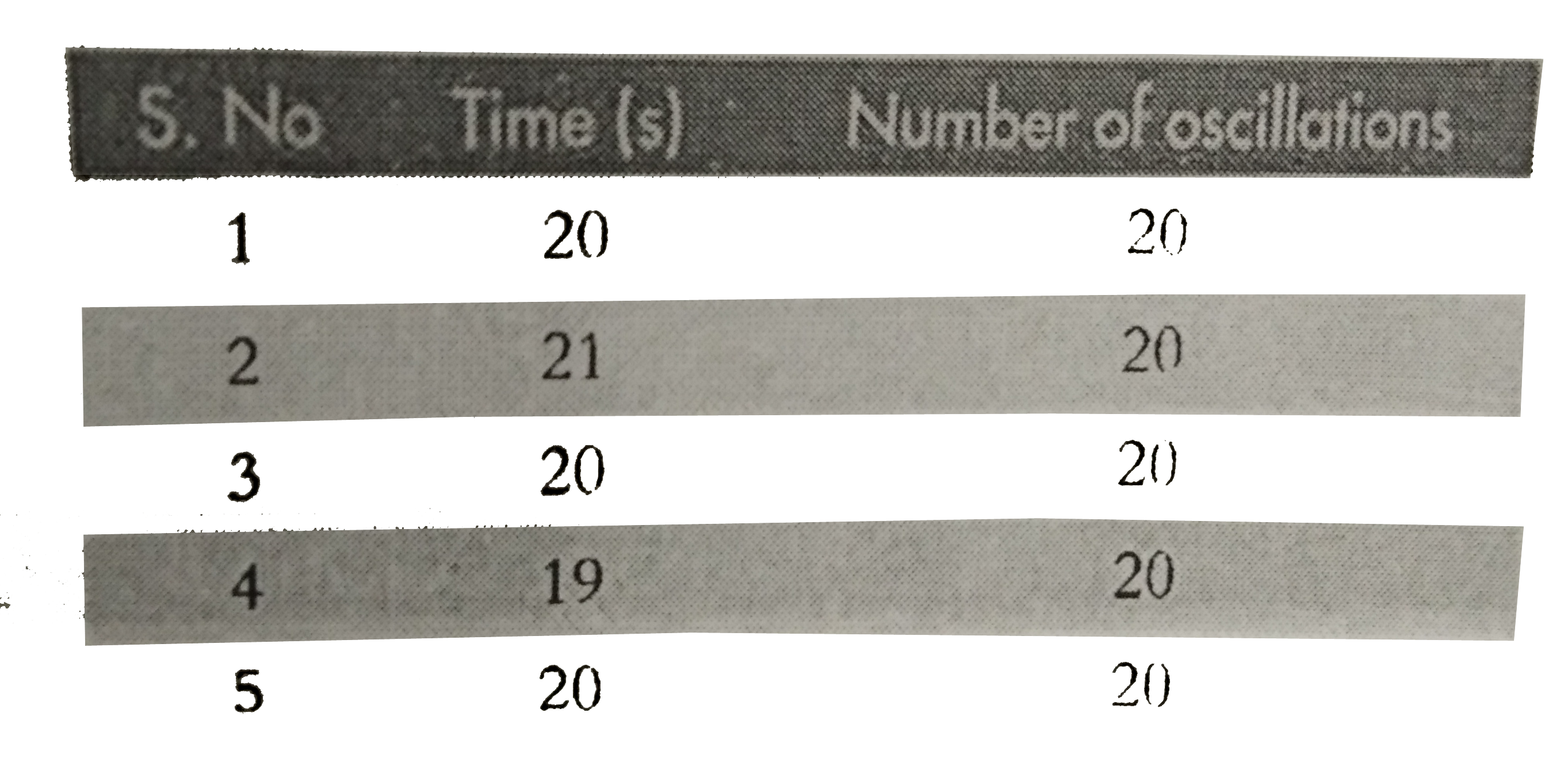The time taken by a simple pendulum to complete 20 oscillations is given in the table as shown below

study the and write the following steps in sequential order to determine the frequency of its oscillations.
(A). Find the reciprocal of average time period (T).
(B). Find the ratio of time and number of oscillations.
(C). Find the average of the values obtained in the previous step.
A
BCA
B
ABC
C
ACB
D
Both (a) and ( c)
Video Solution
Text Solution
The correct Answer is:A
Find the time period in each step.
Time period = time taken for 20 oscillationsNumber of oscillations
Find the average value of the time period obtained in the percous step.
Find the reciprocal of the average time period as frequency.
|
Topper's Solved these Questions
- KINEMATICSBOOK - PEARSON IIT JEE FOUNDATIONCHAPTER - KINEMATICSEXERCISE - EXAMPLE
4 Videos
- KINEMATICSBOOK - PEARSON IIT JEE FOUNDATIONCHAPTER - KINEMATICSEXERCISE - TEST YOUR CONCEPTS (VERY SHORT ANSWER TYPE QUESTIONS (FILL IN THE BLANKS))
8 Videos
- KINEMATICSBOOK - PEARSON IIT JEE FOUNDATIONCHAPTER - KINEMATICSEXERCISE - Level 3
6 Videos
- HEAT BOOK - PEARSON IIT JEE FOUNDATIONCHAPTER - HEAT EXERCISE - Test 2
14 Videos
- LIGHTBOOK - PEARSON IIT JEE FOUNDATIONCHAPTER - LIGHTEXERCISE - ASSESSMENT TEST (TEST 2 (SELECT THE CORRECT ALTERNATIVE))
15 Videos
Similar Questions
Knowledge Check
The time taken by a simple pendulum to complete 20 oscillations is given in the table as shown below

study the and write the following steps in sequential order to determine the frequency of its oscillations.
(A). Find the reciprocal of average time period (T).
(B). Find the ratio of time and number of oscillations.
(C). Find the average of the values obtained in the previous step.ABCABABCCACBDBoth (a) and ( c)What is the time taken by the pendulum to complete one oscillation called?
ATime periodBFrequencyCAmplitudeDVibrationIf the time taken by a simple pendulum to com-plete 16 oscillations is 4 seconds,
what is the time period of the simple pendulum ?A4 sB64 sC0.4 sD0.25 s
The time taken to complete 10 oscillations by a seconds pendulum is
View SolutionThe time period of a simple pendulum is independent of _______ of oscillation.
View SolutionA simple pendulum takes 32 s to complete 20 oscillations. What is the time period of the pendulum?
View SolutionThe time taken to complete ...... Oscillation (s) is called time period
View SolutionThe time period of a simple pendulum oscillating in a freely falling lift is
View Solution